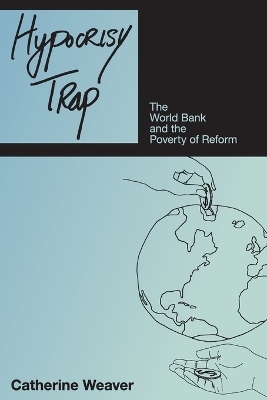
Hypocrisy Trap
The World Bank and the Poverty of Reform
Seiten
2008
Princeton University Press (Verlag)
978-0-691-13819-0 (ISBN)
Princeton University Press (Verlag)
978-0-691-13819-0 (ISBN)
The World Bank has attracted equal amounts of criticism and praise. Critics are especially quick to decry the World Bank's hypocrisy - the pervasive gaps between the organization's talk, decisions, and actions. This book explores how the characteristics of change in a complex international organization make hypocrisy difficult to resolve.
As the preeminent international development agency for the past sixty years, the World Bank has attracted equal amounts of criticism and praise. Critics are especially quick to decry the World Bank's hypocrisy--the pervasive gaps between the organization's talk, decisions, and actions. In the wake of the Paul Wolfowitz leadership scandal in May 2006, perceptions of hypocrisy have exacted a heavy toll on the Bank's authority and fueled strong demands for wide-scale reform. Yet what exactly does the hypocrisy of the World Bank look like, and what or who causes it? In Hypocrisy Trap, Catherine Weaver explores how the characteristics of change in a complex international organization make hypocrisy difficult to resolve, especially after its exposure becomes a critical threat to the organization's legitimacy and survival. Using a rich sociological model and several years of field research, Weaver delves into the political and cultural worlds within and outside of the Bank to uncover the tensions that incite and perpetuate organized hypocrisy.
She examines the sources and dynamics of hypocrisy in the critical cases of the Bank's governance and anticorruption agenda, and its recent Strategic Compact reorganization. The first book to unravel the puzzle of organized hypocrisy in relation to reform at the World Bank, Hypocrisy Trap ultimately enriches our understanding of culture, behavior, and change in international organizations.
As the preeminent international development agency for the past sixty years, the World Bank has attracted equal amounts of criticism and praise. Critics are especially quick to decry the World Bank's hypocrisy--the pervasive gaps between the organization's talk, decisions, and actions. In the wake of the Paul Wolfowitz leadership scandal in May 2006, perceptions of hypocrisy have exacted a heavy toll on the Bank's authority and fueled strong demands for wide-scale reform. Yet what exactly does the hypocrisy of the World Bank look like, and what or who causes it? In Hypocrisy Trap, Catherine Weaver explores how the characteristics of change in a complex international organization make hypocrisy difficult to resolve, especially after its exposure becomes a critical threat to the organization's legitimacy and survival. Using a rich sociological model and several years of field research, Weaver delves into the political and cultural worlds within and outside of the Bank to uncover the tensions that incite and perpetuate organized hypocrisy.
She examines the sources and dynamics of hypocrisy in the critical cases of the Bank's governance and anticorruption agenda, and its recent Strategic Compact reorganization. The first book to unravel the puzzle of organized hypocrisy in relation to reform at the World Bank, Hypocrisy Trap ultimately enriches our understanding of culture, behavior, and change in international organizations.
Catherine Weaver is assistant professor of political science at the University of Kansas.
List of Figures and Tables ix Preface xi Abbreviations xv CHAPTER ONE: Introduction: Hypocrisy and Change in the World Bank 1 CHAPTER TWO: The World Bank Hypocrisy Trap 19 CHAPTER THREE: The World's Bank and the Bank's World 44 CHAPTER FOUR: Good Governance and Anticorruption: From Rhetoric to Reality? 92 CHAPTER FIVE: The Poverty of Reform 140 CHAPTER SIX: The Fog of Development 176 List of Interviews 193 References 195 Index 219
| Erscheint lt. Verlag | 16.11.2008 |
|---|---|
| Zusatzinfo | 4 line illus. 5 tables. |
| Verlagsort | New Jersey |
| Sprache | englisch |
| Maße | 152 x 235 mm |
| Gewicht | 340 g |
| Themenwelt | Wirtschaft ► Betriebswirtschaft / Management ► Finanzierung |
| Betriebswirtschaft / Management ► Spezielle Betriebswirtschaftslehre ► Bankbetriebslehre | |
| Wirtschaft ► Volkswirtschaftslehre ► Makroökonomie | |
| ISBN-10 | 0-691-13819-2 / 0691138192 |
| ISBN-13 | 978-0-691-13819-0 / 9780691138190 |
| Zustand | Neuware |
| Haben Sie eine Frage zum Produkt? |
Mehr entdecken
aus dem Bereich
aus dem Bereich
warum unser Geld stirbt und wie Sie davon profitieren
Buch | Hardcover (2024)
FinanzBuch (Verlag)
30,00 €
denken und handeln wie ein professioneller Trader
Buch | Softcover (2023)
Vahlen, Franz (Verlag)
36,90 €


